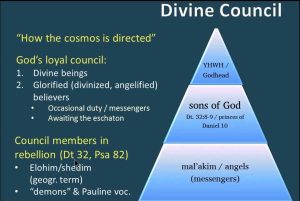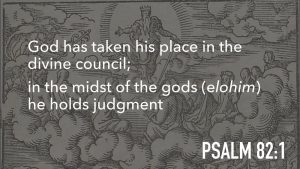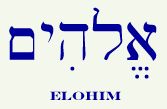
Shownotes
Welcome to Day 1441 of our Wisdom-Trek, and thank you for joining me.
I am Guthrie Chamberlain, Your Guide to Wisdom
Objections – The Trinity and Idols are not God’s Divine Council – Worldview Wednesday
Wisdom - the final frontier to true knowledge. Welcome to Wisdom-Trek! Where our mission is to create a legacy of wisdom, to seek out discernment and insights, to boldly grow where few have chosen to grow before. Hello, my friend, I am Guthrie Chamberlain, your captain on our journey to increase Wisdom and Create a Living Legacy. Thank you for joining us today as we explore wisdom on our 2nd millennium of podcasts. Today is Day 1441 of our Trek, and it is Worldview Wednesday. Creating a Biblical Worldview is essential to have a proper perspective on today’s current events. To establish a Biblical Worldview, you must have a proper understanding of God and His Word. This week, on our Worldview Wednesday episode, we will continue with our study based on a course I recently completed taught by Dr. Michael Heiser. Our study is titled “Sons and Daughters of God: The Believer’s Identity, Calling, and Destiny” Throughout this multi-week course we will demonstrate that, in the Old Testament, “sons of God” and “holy ones” refers to supernatural beings whose Father is God and who work with God to carry out His will and that this divine family was present before humanity. By fully engaging with biblical texts such as Psalm 82; Psalm 89, and Deuteronomy 32:8–9, our study will show that this divine family functions as a template for God’s human family. God desires of humans, as His imagers, to participate in His council. This study addresses issues such as polytheism, the nature of the (little ‘g’) “gods,” and the uniqueness of Yahweh. Within this study, we will apply insights to the New Testament texts and shows how the metaphor of being in God’s family informs our sense of identity and mission as believers.
Objections Part 1
· Segment 5: Trinity
Impossibility of Elohim as Trinity in Psalm 82
Now, as we go through these questions, I think we’ll see that none of them are really very complicated, although some are easier to see the answer than others. Let’s take the question about the Trinity first. Are the plural elohim references of Psalm 82, for instance, references to the Trinity?
Well, if we are talking about Psalm 82 and its council, which, of course, is drawn on by Psalm 89 and other passages that we’ll see as we go on, Psalm 82 actually forbids the idea that this could be speaking of the Trinity. Let’s take a look at the psalm itself and just read through it. Verse 1:
God has taken his place in the divine council;
in the midst of the gods, he holds judgment:
“How long will you judge unjustly
and show partiality to the wicked? Selah
Give justice to the weak and the fatherless;
maintain the right of the afflicted and the destitute.
Rescue the weak and the needy;
deliver them from the hand of the wicked.”
They have neither knowledge nor understanding,
they walk about in darkness;
all the foundations of the earth are shaken.
I said, “You are gods,
sons of the Most High, all of you;
nevertheless, like men you shall die,
and fall like any prince.”
Arise, O God, judge the earth;
for you shall inherit all the nations!
That’s the entire psalm, and what’s the point? Well, the plural elohim from verse 1 that God is addressing in this council are really getting a reprimand from God because they are wicked, and they are corrupt.

Divine Rebellion
We get a little sense of what the point is by the last line, “Arise O God, judge the earth; for you shall inherit all the nations!” Now, it would take a whole other course to explain divine rebellion in the history of the Old Testament and Old Testament theology. Still, one of those rebellions has to do with what happened at the Tower of Babel.
The short version is that God was again displeased with humanity and decided, “I’m going to split you up into a bunch of nations.” And according to Deuteronomy 32:8-9, God assigned those nations, He divided them up, according to the number of the sons of God. So God assigns the nations that are not His own people because He is going to call Abraham right after the Tower of Babel incident and create for Himself a new nation; He assigns those other nations to other gods. He allots them to them. And here in Psalm 82, we find out that those other gods did not rule those nations according to the good laws, the good rules, the good nature, the good character of Yahweh. God still wants people treated well, even though they are not Israelites. So, God is giving these other gods, these “sons of the Most High” in verse 6, a reprimand. They are corrupt; they are wicked; they are evil.
And the psalmist in the last verse looks forward to the day when God would rise up and take back the nations—in other words, breaking the stronghold of these other gods, solving the wickedness problem for all the other nations as well.
Summary
That alone, that little set of facts about the psalm and its context, of course, it rules out the Trinity. God is never going to reprimand the other members of the Trinity for being corrupt. He is never going to look them in the eyes, so to speak, and say, “Well, you are gods, you are elohim, all of you; nevertheless, you are going to die like men.” He is never going to say that to the other members of the Trinity.
The Spirit of God is not a son of God anyway, going back to the language of verse 6. So we don’t have the Trinity here by any stretch of the imagination in Psalm 82. That would be, frankly, terrible theology. So the question about a Trinity is arguably the easiest of these questions to answer.
· Segment 6: Idols Part 1
No Idols in Heaven
 Now, we just saw that the plural elohim of Psalm 82:1 is not a reference to other members of the Trinity because the other members of the Trinity aren’t wicked and corrupt. But some would ask, “Well, are they idols? Are we talking about idols here? Because in the Old Testament, you do get a few passages where idol talk and talk about other gods are sort of mixed.”
Now, we just saw that the plural elohim of Psalm 82:1 is not a reference to other members of the Trinity because the other members of the Trinity aren’t wicked and corrupt. But some would ask, “Well, are they idols? Are we talking about idols here? Because in the Old Testament, you do get a few passages where idol talk and talk about other gods are sort of mixed.”
Well, Psalm 89 and Job 1–2 rule this out. In Psalm 89, God’s council is in heaven; it’s “in the skies” in that language. Now, we don’t have idols in the heavens; idols are objects that are on earth. Job 1–2: the sons of God appear in God’s own presence, His throne room, so to speak. We don’t have idols in God’s throne room, either.
To be blunter, idols don’t work for God, and God doesn’t use idols to accomplish His will. We are not talking about idols here when we are talking about the divine council, these plural elohim, sons of God. Now, other divine council scenes will make this point pretty clear. Idols do not participate in God’s program.
Heavenly Host in 1 Kings 22:19–23
 In 1 Kings 22:19–23, we read about an episode in Israel’s history where the Israelite King Ahab has invited the king of Judah, Jehoshaphat, to his palace because he wants to convince Jehoshaphat to align himself with his battle plans. Ahab wants to go up and attack a city called Ramoth-Gilead.
In 1 Kings 22:19–23, we read about an episode in Israel’s history where the Israelite King Ahab has invited the king of Judah, Jehoshaphat, to his palace because he wants to convince Jehoshaphat to align himself with his battle plans. Ahab wants to go up and attack a city called Ramoth-Gilead.
Jehoshaphat goes up there to meet with Ahab. Ahab brings out all his prophets, and they, of course, say, “Yeah, Ahab, you know what you are doing. Go up there, and you’re going to be successful.” But Jehoshaphat has a sense they are just telling him what he wants to hear. So, he asks, “Hey, isn’t there a prophet of Yahweh around here somewhere that we could ask him?”
I love Ahab’s answer in 1 Kings 22:8. He says, or it reads, “And the king of Israel [Ahab] said to Jehoshaphat, ‘There is yet one man by whom we may inquire of the Lord, Micaiah the son of Imlah, but I hate him, for he never prophesies good concerning me, but evil.’ ” In other words, “He never tells me what I want to hear.”
So they bring Micaiah out, and Micaiah at first mocks Ahab’s prophets by repeating what they say, but Ahab is not a dumb guy. He knows what’s going on. He says in verse 16, “How many times shall I make you swear that you speak to me nothing but the truth in the name of the Lord?”
And so, Micaiah says, “Alright. Do you want to hear what the Lord has to really say? I’ll tell you.” So, in verse 19, we read this,
Micaiah said, “Therefore hear the word of the Lord: I saw the Lord sitting on his throne, and all the host of heaven standing beside him on his right hand and on his left; and the Lord said, ‘Who will entice Ahab, that he may go up and fall at Ramoth-Gilead?’ And one said one thing, and another said another. Then a spirit came forward and stood before the Lord, saying, ‘I will entice him.’ And the Lord said to him, ‘By what means?’ And he said, ‘I will go out, and will be a lying spirit in the mouth of all his prophets.’ And he said, ‘You are to entice him, and you shall succeed; go out and do so.’ Now therefore behold, the Lord has put a lying spirit in the mouth of all these your prophets; and the Lord has declared disaster for you.”
Now, this is a real telling scene in a number of respects, and we will get to some of those respects as we continue through our course. What I want you to notice here is that who is with the Lord in this meeting about Ahab? It’s the members of the heavenly host. They are spirits; they are not idols. Again, idols do not work for God. We’re going to see this kind of situation in other passages as well.
Who Carries Out God’s Decrees?
Now, what I want you to be thinking about is: Who participates with God in carrying out God’s will? Who is there for God to task in carrying out His decrees? We’ve ruled the Trinity out because of Psalm 82, and the members of the Trinity are not wicked. It’s not idols either because idols don’t work for God; they are hostile to God; they are, by definition, opposers. And 1 Kings 22 gives us the first glimpse of that. Next Worldview Wednesday, we ill take a look at some other passages.[1]
That will conclude our next two segments in our study, “Sons and Daughters of God: The Believers Identity, Calling, and Destiny.” Join us again next week. I believe you will find each Worldview Wednesday contains thought-provoking topics to consider as we build our Biblical Worldview.
Tomorrow we will continue with our 3-minute Humor nugget that will provide you with a bit of cheer, which will help you to lighten up and live a rich and satisfying life. So encourage your friends and family to join us and then come along with us tomorrow for another day of ‘Wisdom-Trek, Creating a Legacy.’ If you would like to listen to any of our past 1440 treks or read the Wisdom Journal, they are available at Wisdom-Trek.com. I encourage you to subscribe to Wisdom-Trek on your favorite podcast player so that each day’s trek will be downloaded automatically.
If you would like to listen to any of our past 1440 treks or read the Wisdom Journal, they are available at Wisdom-Trek.com. I encourage you to subscribe to Wisdom-Trek on your favorite podcast player so that each day’s trek will be downloaded automatically.
Thank you so much for allowing me to be your guide, mentor, and, most of all, your friend as I serve you in through this Wisdom-Trek podcast and journal.
As we take this Trek together, let us always:
- Live Abundantly (Fully)
- Love Unconditionally
- Listen Intentionally
- Learn Continuously
- Lend to others Generously
- Lead with Integrity
- Leave a Living Legacy Each Day
I am Guthrie Chamberlain….reminding you to ’Keep Moving Forward,’ ‘Enjoy your Journey,’ and ‘Create a Great Day…Everyday’! See you Tomorrow!
[1] Heiser, M. S. (2019). Sons and Daughters of God: The Believer’s Identity, Calling, and Destiny. Bellingham, WA: Lexham Press.